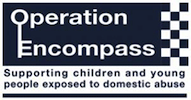 |
The subject leader for Computing in school is Mr Hodder. | ||
 |
|||
 |
 |
||
|
Curriculum Overview |
Key Learning |
||
Click here to link to our online safety information and policies
The Intent of our Computing Curriculum
At The Cathedral school we believe that successfully navigating through a digital world is a fundamental skill for life-long learning and a crucial ability in a new, ever-evolving digital future. We want all our stakeholders – children, staff, parents and carers and the wider community to be safe whilst understanding and mastering the demands of a near ubiquitous digital landscape. We intend to teach our children how to be critical users of information technology, developing their computational thinking to combine learning in other STEM disciplines including, mathematics, science and design technology as a strong foundation for creative approaches to solve problems and communicate information via a digitally literate approach.
We protect consumers of digital technologies in school by a range of rigorous safeguards, at the centre of which is our teaching of online safety, supported by stringent filtering and monitoring to ensure that everyone in school knows:
-
How to access the world wide web responsibly and safely
-
How to act responsibly whilst online
-
How and who to report to if things go wrong
-
How to protect themselves and others from unwanted experiences online
We intend to deliver an ambitious, exciting and challenging curriculum that equips all in school with the ability to use computational thinking and creativity to understand and change the world. We recognise crucial links between computing with mathe
The Implementation of our Computing Curriculum
At the Cathedral Catholic Primary School, we use the Purple Mash Scheme of Work to ensure progression, including to:
-
Understand and apply the fundamental principles and concepts of computer science, including abstraction, logic, algorithms and data representation
-
Analyse problems in computational terms, and have repeated practical experience of writing computer programs in order to solve such problems
-
Evaluate and apply information technology, including new or unfamiliar technologies, analytically to solve problems
-
Be responsible, competent, confident and creative users of information and communication technology.
At EYFS, children have access to a range of digital technologies that they are able to explore and investigate the world with. The Computing Curriculum in EYFS is served across many of the 17 ELGs, including but not limited to such examples as: Personal, Social and Emotional Development (e.g. listening to adults, following instructions, caring for equipment etc); Managing Self (e.g. returning equipment carefully) and Fine Motor Schools (e.g. using a range of small tools). Cross curricular links are made using our digital technology to reinforce the Literacy and Mathematics ELGs. In this way our children in Reception are prepared for the Year 1 computing curriculum.
In Key Stage 1, children have access to laptops and Ipads in caddies housed within each classroom. The Purple Mash Computing Scheme of Work is delivered as a discrete curriculum however, children also have access to their own digital technologies to support cross-curricular links wherever appropriate. Children in this phase are introduced to their own Purple Mash account and are able to log on and navigate around the multitude of games, activities, tasks and challenges independently.
In Key Stage 2, all children have access to their own laptop – ensuring that the aims of each sequenced set of lessons can be attained. At the Cathedral Catholic Primary School, children in this phase save and retrieve their work routinely, accessing their own areas of our school’s server. Children manage their own folders, whilst accessing a greater range of apps, programmes and websites in support of the Scheme of Work.
Online Safety is a central and continuous plank throughout our Computing Scheme of Work, with each year group focusing on how to keep safe online throughout the year, linking with our PSHE curriculum.
Each year, every child, their teacher and their parent sign an ‘Home School Online Agreement’ inline with our statutory responsibilities as set out in Keeping Children Safe in Education (updated for September 2024). This document helps support our online safety message in school as well as provide a foundation for good ‘netiquette’ at home for life-long digital access.
The Impact of our Computing Curriculum
At the Cathedral Catholic Primary School, we want all our children to use digital devices safely and appropriately. We assess each child’s progress at the end of every unit of work, via integral tasks to ensure they are progressing well. In this way, we measure the impact of our Computing Curriculum ensuring a good level of achievement.
We ensure, through continual teaching about and learning from online safety elements that all our children are safe and treat others safely. Children will transition to KS3 by understanding computer science principles, analysing and solving computational and programming problems, evaluating how and why they use technology to interact with the wider world and do so safely and creatively as their experience and sophistication grow.





.jpg)
.png)
.png)

